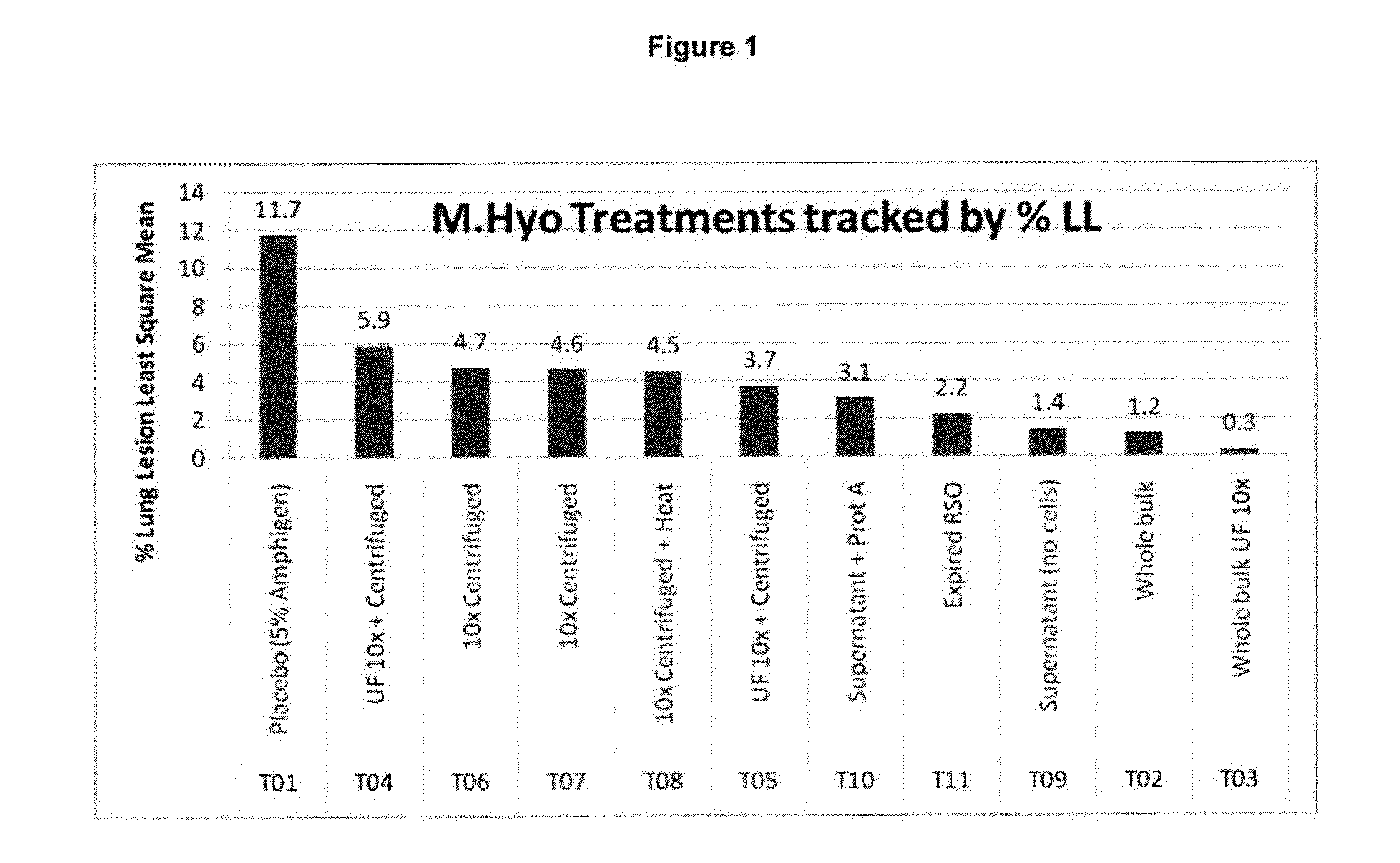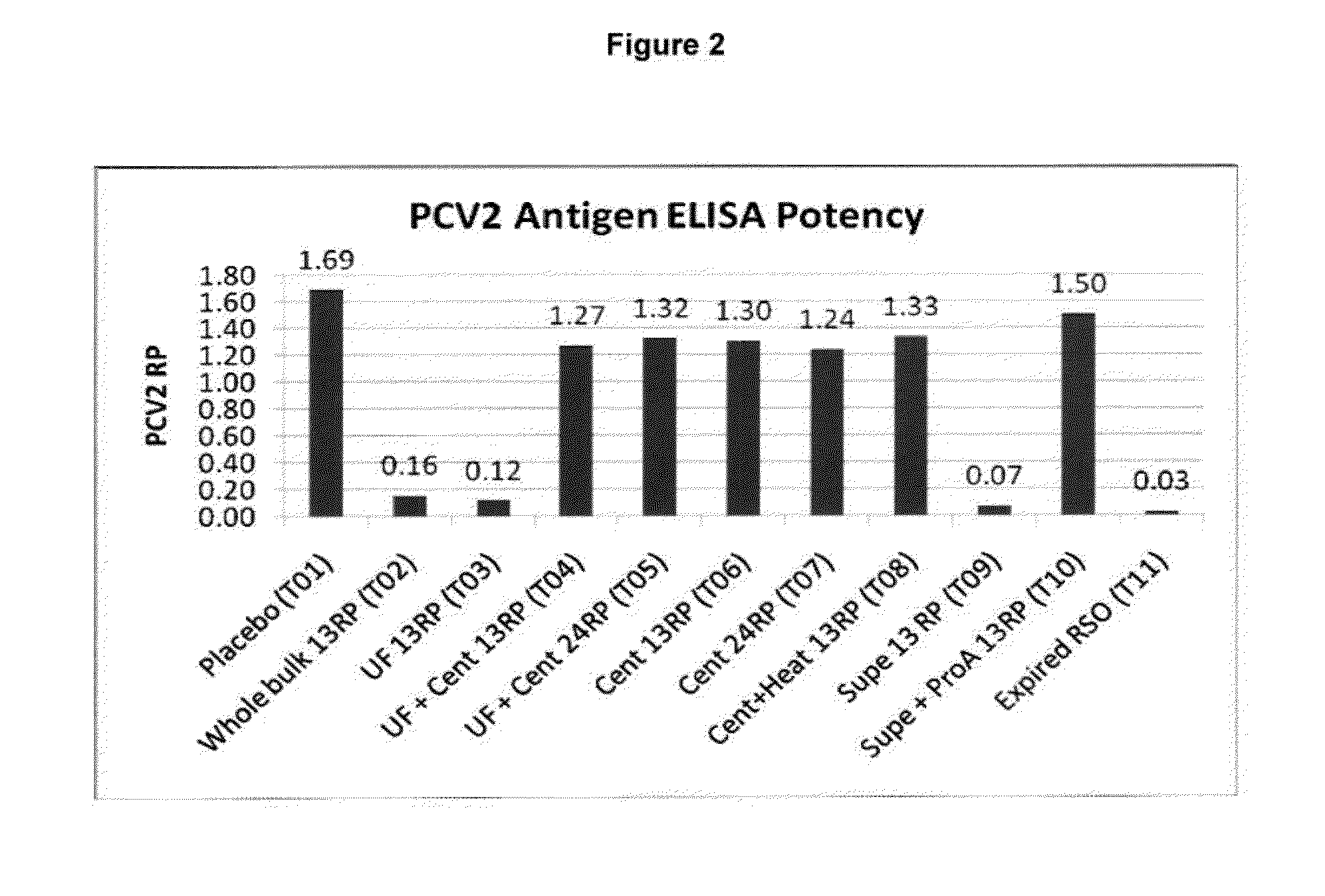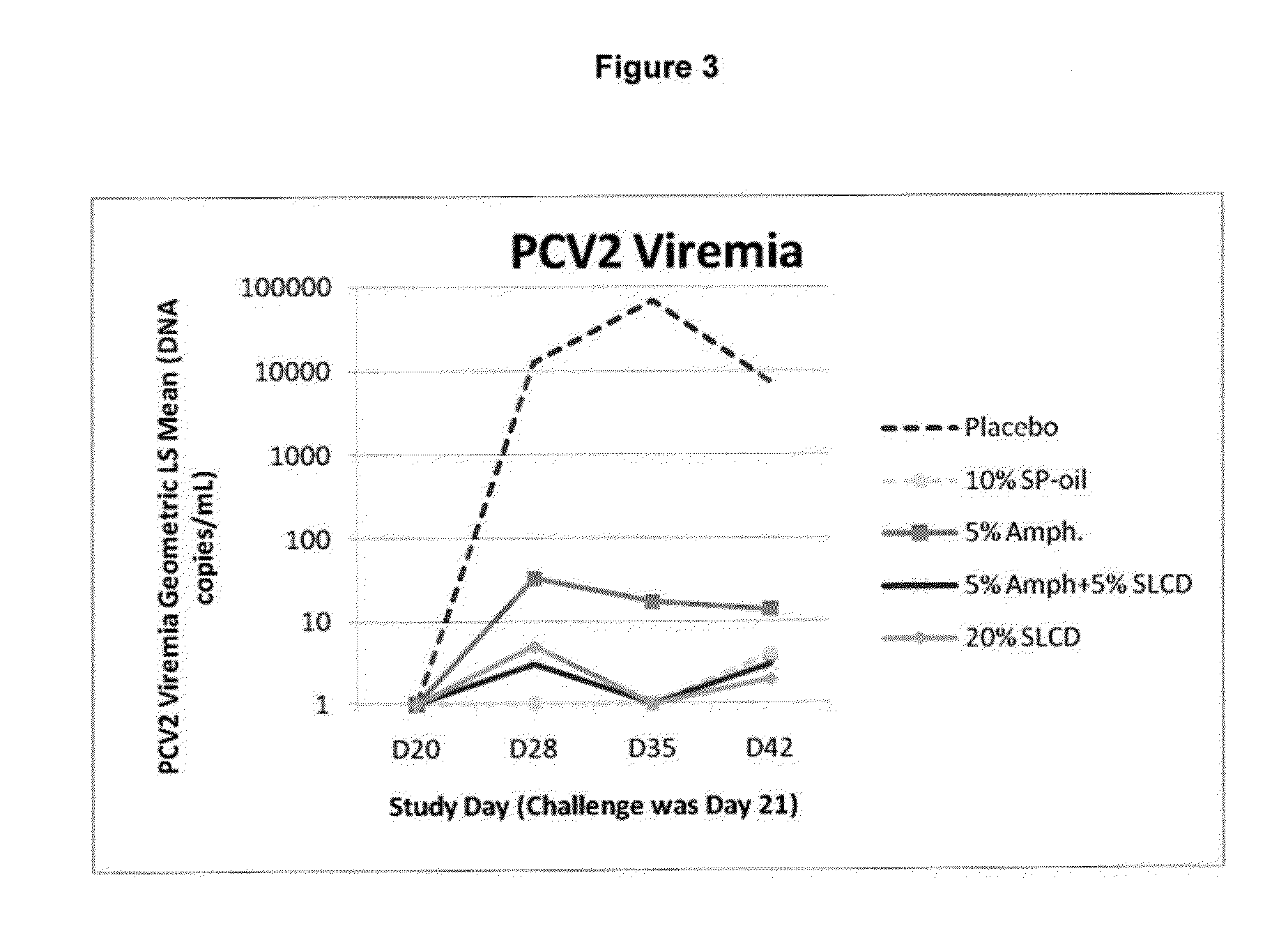PCV/Mycoplasma hyopneumoniae combination vaccine
a hybrid vaccine and mycoplasma technology, applied in the field of vaccines for mycoplasma hyopneumoniae and circovirus, can solve the problems of pigs prone to secondary pathogen infection, tetracyclines and lincomycin, and prolonged use of tetracyclines and lincomycin
- Summary
- Abstract
- Description
- Claims
- Application Information
AI Technical Summary
Benefits of technology
Problems solved by technology
Method used
Image
Examples
example 1
Mycoplasma Hyopneumoniae Production Methods for PCV2 Combinable M. hyo Antigen
M. hyo Fermentation and Inactivation
[0122]Media for seed scale and antigen production was prepared as follows. Porcine heart derived Pleuropenumonia-like Organism (PPLO) Broth (BD Biosciences catalog No. 21498) was made per manufacturer's directions (i.e., 21 g / l) and yeast extract solution was made at 21 g / L in USP. Yeast extract solution was then added to the PPLO at 6.25% and the mixture was sterilized by heating to 121° C. for ≧30 minutes. Cysteine hydrochloride was prepared at 90 g / L and filter sterilized. Dextrose solution was made by adding 450 g of dextrose per liter of USP water followed by heat sterilization. To prepare the final medium, porcine serum was added to the base medium at 10% followed by cysteine at 0.01% and dextrose at 1.0%. The medium was inoculated with a 10% v:v of a log phase culture of M. hyopeumoniae (strain P-5722-3). The culture was held at 37° C. and pH and dO were maintaine...
example 2
Chimeric Porcine Circovirus (cPCV)1-2 Production Methods
[0123]The cPCV1-2 was constructed by cloning the immunogenic capsid gene of the pathogenic porcine circovirus type 2 (PCV2) into the genomic backbone of the nonpathogenic porcine circovirus type 1 (PCV1). The procedure for construction of the chimeric DNA clone is described, for example, in U.S. Pat. No. 7,279,166, which is incorporated herein by reference in its entirety. An infectious stock of the chimeric virus was acquired from Dr. X. J. Meng, Virginia Polytechnic Institute and State University, Blacksburg, Va., and was used to infect Porcine Kidney (PK)-15 cells grown in Minimum Essential Medium (MEM) supplemented with 0.05% lactalbumin hydrolysate (LAM, 30 μg / mL gentamicin sulfate, and 5% fetal bovine serum. The resulting cPCV1-2 infected PK-15 cells were further expanded by serial passing four more times using the same growth medium except with 2-3% fetal bovine serum. The fifth passage was frozen, thawed and filtered, a...
example 3
Down Stream Processing of M. hyo Antigens and Analytical Testing of these Processed Antigens
Down Stream Processing of M. hyo Antigens:
[0133]Inactivated fermentation fluid (prepared as described above in Example 1) was treated for each indicated group as follows. These processed M. hyo antigens were employed in Example 4 below.
[0134]T02: (Whole Bulk) not processed.
[0135]T03: (10×UF concentrated) Concentrated via tangential flow filtration via a 100 KDa molecular weight cutoff membrane (hollow fiber), Final volume reduction was equal to 10×.
[0136]T04& T05: (10×UF concentrated & centrifuged) Concentrated mycoplasma cells (from T03) were collected and washed one time with PBS via centrifugation at ˜20,000×g (Sorvall model RC5B).
[0137]T06 & T07: (10× centrifuged) Inactivated fermentation fluid was centrifuged at ˜20,000×g (Sorvali RC5B) and washed one time by resuspending the cells in PBS followed by an additional centrifugation. Final volume reduction was equal to 10×.
[0138]T08: (10× ce...
PUM
| Property | Measurement | Unit |
|---|---|---|
| concentration | aaaaa | aaaaa |
| concentration | aaaaa | aaaaa |
| v/v | aaaaa | aaaaa |
Abstract
Description
Claims
Application Information
 Login to View More
Login to View More - R&D
- Intellectual Property
- Life Sciences
- Materials
- Tech Scout
- Unparalleled Data Quality
- Higher Quality Content
- 60% Fewer Hallucinations
Browse by: Latest US Patents, China's latest patents, Technical Efficacy Thesaurus, Application Domain, Technology Topic, Popular Technical Reports.
© 2025 PatSnap. All rights reserved.Legal|Privacy policy|Modern Slavery Act Transparency Statement|Sitemap|About US| Contact US: help@patsnap.com



